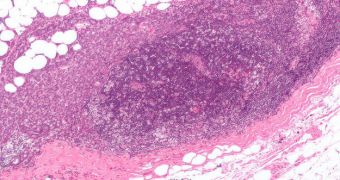According to a new series of investigations, it would appear that post-menopausal women who reduce their intake of replacement hormones are subjected to a smaller risk of developing breast cancer.
This rate has been demonstrated to be higher for those who take large amounts of hormones. The work hints at new directions from which breast cancer can be attacked even before it develops.
Women became aware of the risks associated with using hormone therapy back in 2002, when researchers conducted an important campaign to educate the public.
Before this effort was made, about 12.7 percent of all women past menopause were using hormone therapies to address bodily imbalances.
After news broke of the potential side-effects, usage rates dropped to around 4.9 percent, over the next two years. The new study shows that breast cancer cases dropped 10 percent between 2002 and 2004 as well.
Investigators believe that this is clear evidence that a direct correlation exists between the two. Details of the new work appear online, in the September 23 issue of the esteemed Journal of the National Cancer Institute.
Given that they had no data as to how many Canadian women had used hormone therapy in the past, the researchers applied a series of questionnaires to about 1,200 women.
All of the test participants were aged between 50 and 69, and the experts wanted to known whether they had used the drugs anytime between 1996 and 2006.
Throughout that decade, healthcare experts regularly prescribed these therapies to their patients, because they alleviated hot flashes and othermenopausal symptoms.
But that stopped when a clinical trial performed by the US Women's Health Initiative in 2002 showed that women who took the drugs were at higher cancer risk .
It was additionally demonstrated that the long-term health benefits of the hormones did not outweigh the potential harm, MyHealthNewsDaily reports.
Data collected from other studies would now seem to indicate that the hormones did not cause cancer on their own, but rather that they made it easier for the disease to develop and progress.

 14 DAY TRIAL //
14 DAY TRIAL //